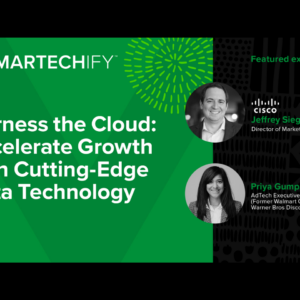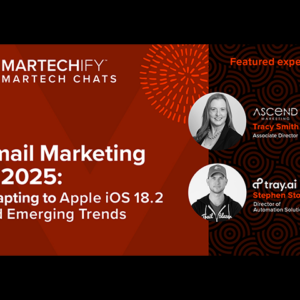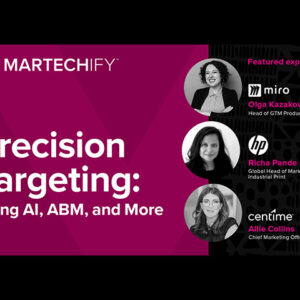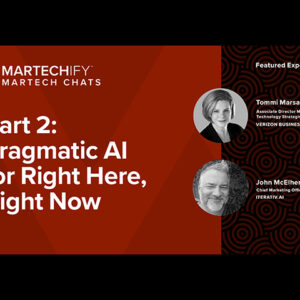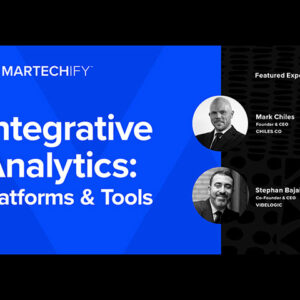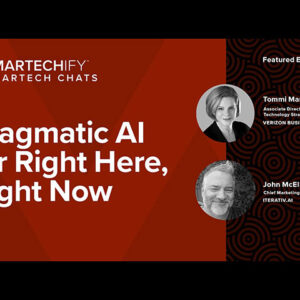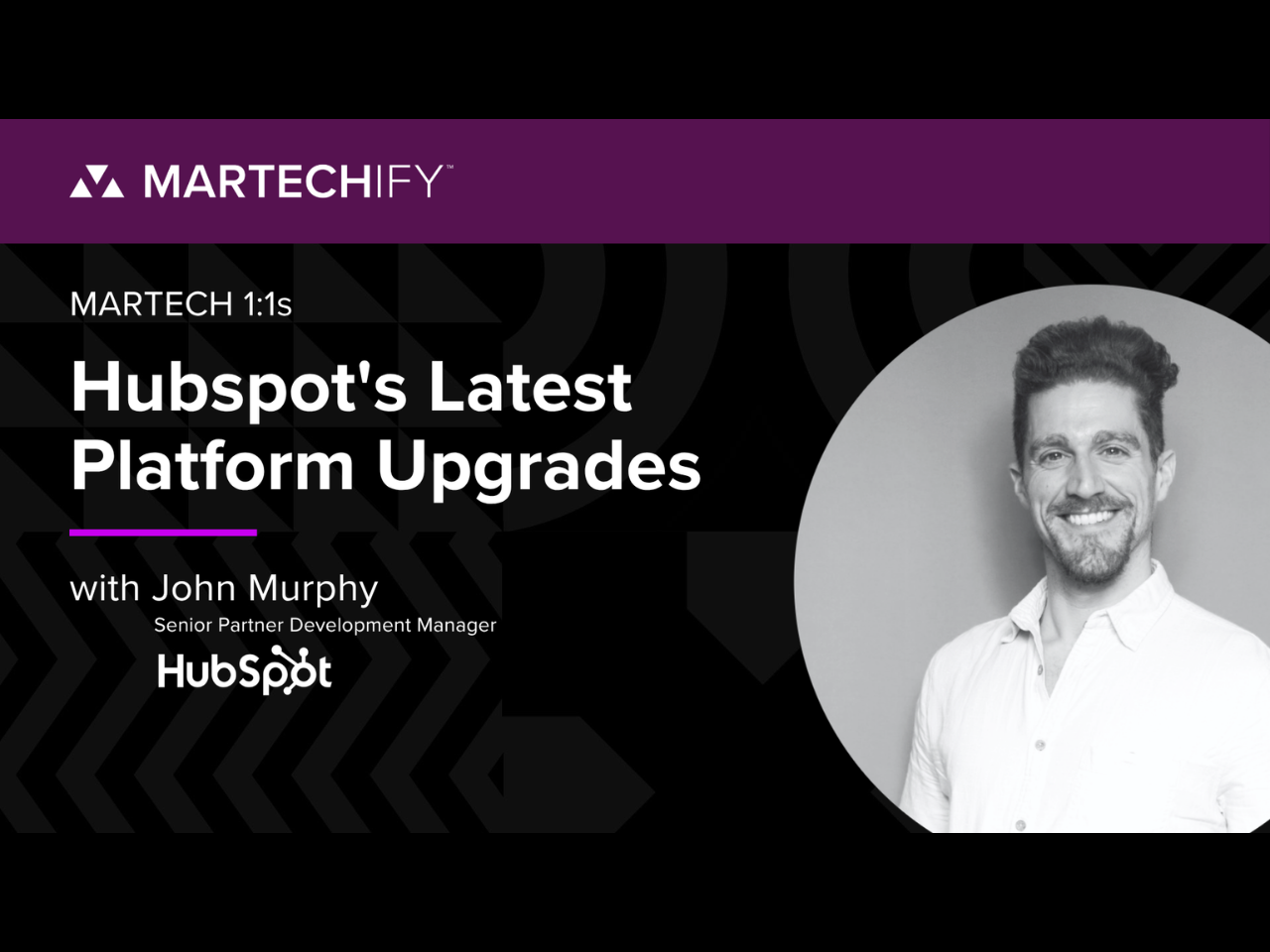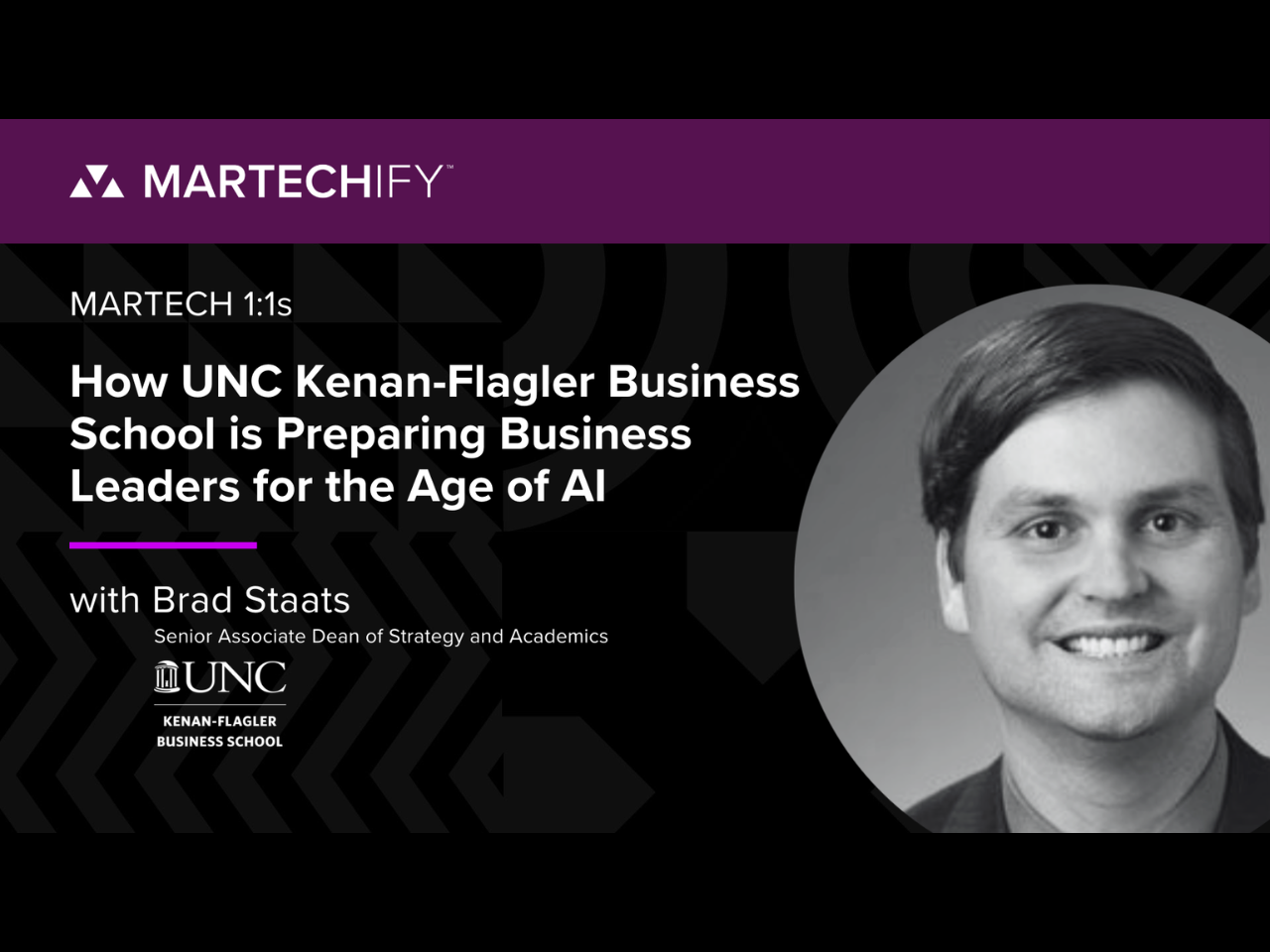AI Agents: The New Frontier in Marketing Technology Orchestration
- Martechify Curated Content
- AI and Automation, Martech Stacks, Sales and Marketing Orchestration, Strategy and Trends
Imagine a martech stack that not only automates tasks but also thinks, decides, and adapts in real-time. Welcome to the era of AI agents—a groundbreaking advancement in marketing technology orchestration.
As Scott Brinker, VP of Platform Ecosystem at HubSpot and Editor at chiefmartec.com, explains in his article, “AI Agents Are the New iPaaS and the Next Frontier of Intense Competition in Digital Ops Orchestration,” AI agents are transforming how marketing tools collaborate to streamline complex processes and redefining the tech stack. We enjoyed his insights and will share key takeaways with you in this summary article.
As Scott Brinker, VP of Platform Ecosystem at HubSpot and Editor at chiefmartec.com, explains in his article, “AI Agents Are the New iPaaS and the Next Frontier of Intense Competition in Digital Ops Orchestration,” AI agents are transforming how marketing tools collaborate to streamline complex processes and redefining the tech stack. We enjoyed his insights and will share key takeaways with you in this summary article.
The evolution of martech stacks
Marketing technology stacks have historically faced challenges in integrating multiple tools and coordinating data flow. Early attempts to consolidate functionality into marketing suites gave way to integration-platform-as-a-service (iPaaS) solutions like Zapier and Workato. These platforms connected tools and streamlined workflows, setting the stage for the next evolution: AI agents.
What are AI agents?
AI agents take automation to the next level by making autonomous decisions based on data. Unlike traditional automation tools that follow pre-programmed rules, AI agents analyze information, determine actions, and execute them independently. For instance, an AI agent could extract customer data from a CRM, analyze behaviors, and automatically launch a targeted campaign.
“Workflow automations ran according to deterministic rules and steps that were programmed by a human. AI agents apply their own intelligence to decide which tools to call when—without an explicit plan dictated to them by humans,” Brinker explains.
“Workflow automations ran according to deterministic rules and steps that were programmed by a human. AI agents apply their own intelligence to decide which tools to call when—without an explicit plan dictated to them by humans,” Brinker explains.
Key AI agent categories
AI agents fall into several categories, including:
– No-code/low-code builders: Platforms such as CrewAI and Lindy allow marketers to create custom AI agents without coding expertise.
– AI decisioning agents: Tools like OfferFit and Aampe autonomously optimize personalized marketing campaigns.
– End-user products with agent-like automations: Microsoft Copilot and Google Gemini enhance individual productivity with intelligent automations integrated directly into familiar tools like Excel and Google Workspace.
– No-code/low-code builders: Platforms such as CrewAI and Lindy allow marketers to create custom AI agents without coding expertise.
– AI decisioning agents: Tools like OfferFit and Aampe autonomously optimize personalized marketing campaigns.
– End-user products with agent-like automations: Microsoft Copilot and Google Gemini enhance individual productivity with intelligent automations integrated directly into familiar tools like Excel and Google Workspace.
Opportunities and challenges
AI agents offer streamlined operations by automating tasks like campaign execution and customer analysis, freeing marketers to focus on strategy and creativity. However, their adoption introduces complexities in managing multiple AI agents and ensuring smooth integration.
As Brinker notes, “[AI agents] are all automating interactions—increasingly autonomously… But will there be one conductor that sees across the entire orchestra and harmonizes all these players?” Intense competition among vendors for this role is expected in the coming years.
AI agents are reshaping marketing operations, presenting significant opportunities to reduce manual work and adapt in real-time. Marketers who embrace and understand these tools will gain a competitive edge in 2025 and beyond.
As Brinker notes, “[AI agents] are all automating interactions—increasingly autonomously… But will there be one conductor that sees across the entire orchestra and harmonizes all these players?” Intense competition among vendors for this role is expected in the coming years.
AI agents are reshaping marketing operations, presenting significant opportunities to reduce manual work and adapt in real-time. Marketers who embrace and understand these tools will gain a competitive edge in 2025 and beyond.

